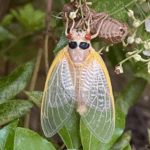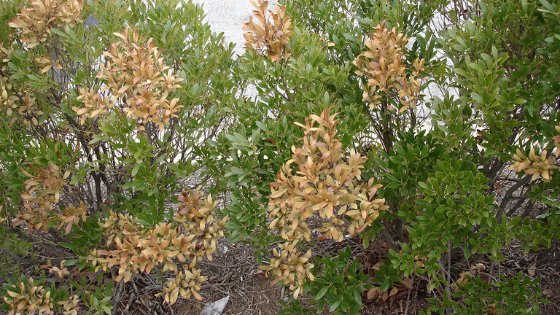 It’s pick-your-own strawberry season at Larriland Farm in Howard County. This family-owned farm has been growing strawberries for decades and welcoming guests to enjoy the fruits of their labors. But this year, they have even more “guests” that are not as welcome.
It’s pick-your-own strawberry season at Larriland Farm in Howard County. This family-owned farm has been growing strawberries for decades and welcoming guests to enjoy the fruits of their labors. But this year, they have even more “guests” that are not as welcome.
That’s because it’s the year for Brood X cicadas. These periodical insects lay dormant for 17 years, then make their appearance known in droves. If you don’t see them, you can definitely hear them. The males produce a high-pitch buzzing noise that can be louder than a lawn mower. The females, which don’t make any sound, are busy slicing into branches to lay up to 600 eggs.
Stanton Gill, an entomology specialist with the University of Maryland Extension, is quite familiar with these insects and how they can affect farms like Larriland. “Female cicadas can cause physical damage to young trees by ovipositing into small branches; such damage can cause ‘flagging,’ or breaking of peripheral twigs,” Stanton says. “Orchard and nursery owners probably should not plant young trees or shrubs in the years preceding an emergence of periodical cicadas, because young trees may be harmed by severe flagging. Mature trees and shrubs, however, usually survive even dense emergences of cicadas.”
To ensure the least amount of damage, Lynn Moore, who operates Larriland Farm with her siblings Guy, Fenby and Nancy, is following their normal farming practice, Integrated Pest Management, cicadas or not. “Fruit trees and small fruit bushes, such as blueberries, have the size twig the cicadas prefer for egg laying,” Lynn says. “We observe first to determine if there will be damage — only then take action. If the cicadas are mating in the orchards, we will use insecticides to decrease the amount of damage.”
The U.S. Department of Agriculture says that Integrated Pest Management is a standard practice for farmers that can also be effective for homeowners. It is a sensible approach to dealing with pests using methods to protect human health and the environment while saving money. It’s a holistic approach to integrating multiple pest control strategies for maximum effect, sometimes using less pesticides, and increasing sustainability.
The lifespan of the cicada is short. They’ll mostly be gone by the end of June. Until then, try to enjoy their natural symphony in the background as you visit local pick-your-own farms and farmers markets this summer.
Hungry for more? Read more about cicadas. Find pick-your-own farms in Maryland. Visit a farmers market this weekend. Try Integrated Pest Management for your home garden and learn more about this ecologically based approach to pest management.
Sign up for our newsletter and find us on Facebook, Twitter and Instagram.

